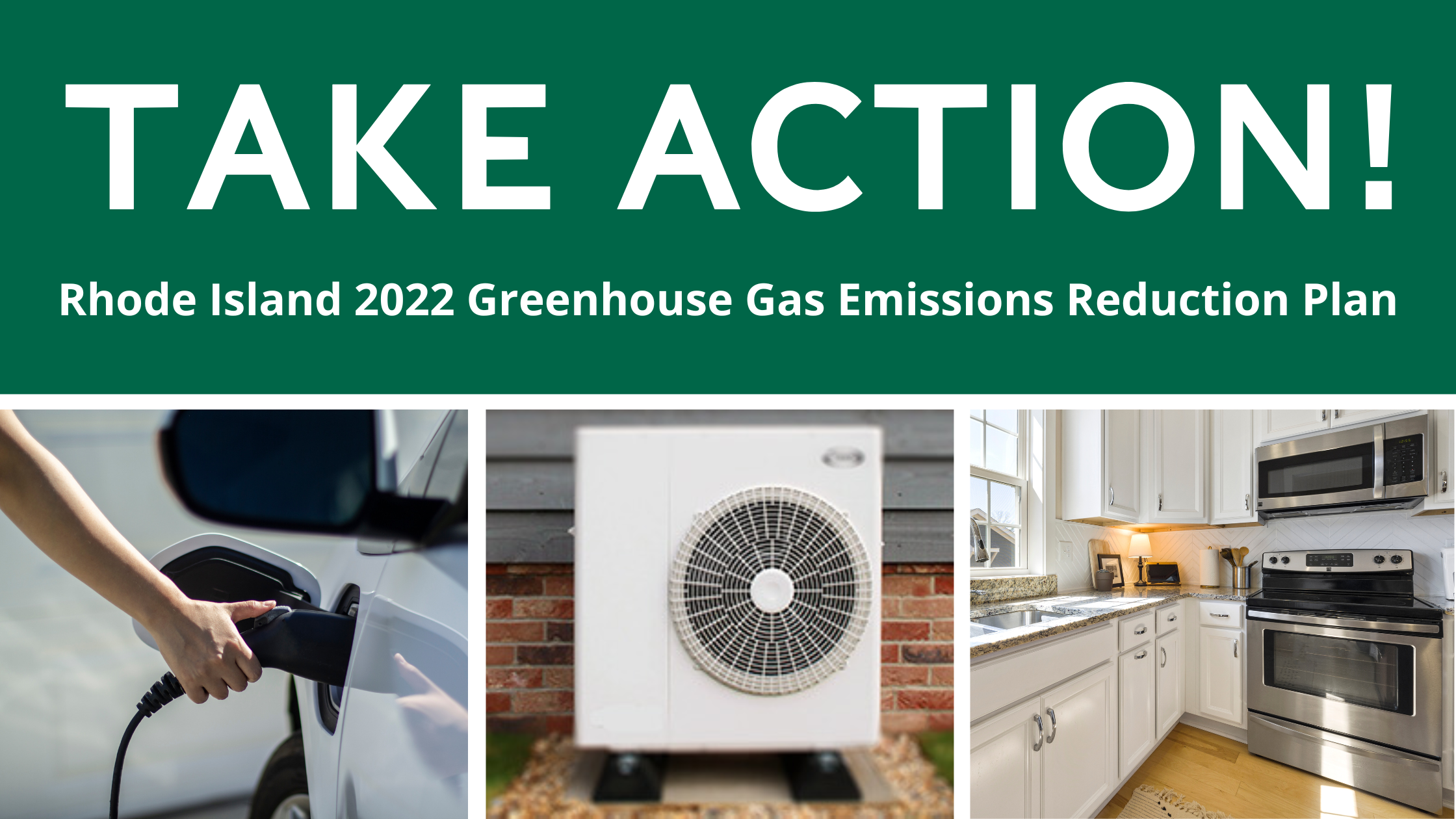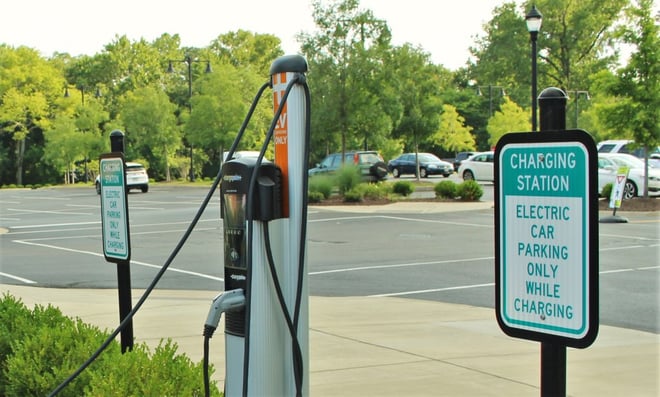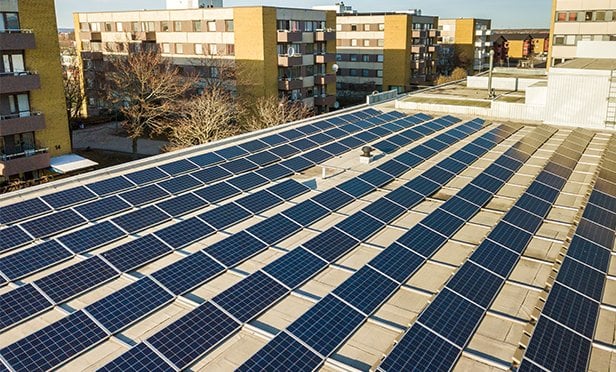Rhode Island’s 2022 Climate Plan Falls Short
On December 15th, Rhode Island's Executive Climate Change Coordinating Council (EC4) approved the final draft of...
 Rhode Island’s Executive Climate Change Coordinating Council (EC4) needs your input on their draft chapters of the 2022 Greenhouse Gas Emissions Reduction Plan: Priority Actions within the Electric, Transportation, and Thermal Sectors. Comments are due by December 2nd. You can access the draft chapters here.
Rhode Island’s Executive Climate Change Coordinating Council (EC4) needs your input on their draft chapters of the 2022 Greenhouse Gas Emissions Reduction Plan: Priority Actions within the Electric, Transportation, and Thermal Sectors. Comments are due by December 2nd. You can access the draft chapters here.
Thanks to the Act on Climate (AOC) bill passed in 2021, Rhode Island must achieve 45% emissions reductions by 2030 and net-zero emissions economy-wide by 2050. In addition to setting these mandated emissions targets, the Act on Climate also required EC4 to deliver an update to their 2016 Greenhouse Gas Emissions (GHG) Reduction Plan. The objective of the update is to reconsider and confirm actions to ensure Rhode Island achieves the Act on Climate’s 2030 mandate. EC4 has been releasing draft chapters of the plan section by section, with the most recent release being their priority actions within the Electric, Transportation, and Thermal Sectors. While the priority actions are a step in the right direction, we feel they fall short of what’s needed to meet the state's Act on Climate mandate.
Let’s start with the good: The electric sector. A key priority action in the electric sector is to implement the 100% renewable energy standard by 2033. Implementing this 100% Renewable Energy Standard (RES) will eliminate emissions from the electric sector, which currently make up 26.3% of economy-wide emissions. Other priority actions in the electric sector include modernizing the electric grid, deploying advanced metering, procuring offshore wind, and completing the Regional Greenhouse Gas Initiative Program Review. While these are all crucial steps to transitioning to 100% renewable energy and meeting the Act on Climate mandate, there is still more to be done.

New England for Offshore Wind/Chris Bennett Photography
We recommend that EC4 supplements the draft with the additional priority actions of:
The updated plan must adequately address the transportation sector as it's the largest (and growing) source of GHG emissions in Rhode Island. To reduce emissions in the transportation sector, Rhode Island must aggressively pursue a two-pronged approach: rapidly electrifying all vehicles on our roads AND reducing vehicle miles traveled by supporting walking, biking, public transit, and other alternatives to personally owned vehicles.
Concerning the electrification of combustion vehicles, we urge EC4 to:

We feel that the listed priority actions in the Thermal Sector will fall short of meeting our emissions reduction mandates and must be more aggressive. We recommend the following changes:

Attend our webinar, Take Action on Rhode Island’s 2022 GHG Emission Reduction Plan, on Wednesday, November 16th at 12 pm. You will learn:
EC4 is accepting comments until December 2nd, 2022. You can submit your comments via the Act on Climate Public Comment Form. You can read our full comments here.
We recommend your comments take this format:
Dear Director Gray and Acting Commissioner Kearns,
My name is ______ and I am a resident of ______, RI. I am writing today to offer comments on the draft chapters of Priority Actions within the Electric, Transportation, and Thermal Sectors under the 2022 GHG Emissions Reduction Draft Plan. For the final draft of the 2022 GHG Emissions Reduction Plan, I encourage the Executive Climate Change Coordinating Council to prioritize the following:
These additional priorities will better suit Rhode Island to achieve its Act on Climate mandate and ensure a healthy, habitable Rhode Island. Thank you for your consideration.
Sincerely,
{NAME}
{CITY}, RI
On December 15th, Rhode Island's Executive Climate Change Coordinating Council (EC4) approved the final draft of...
The Resilient Rhode Island Act mandates that Rhode Island take active steps to mitigate and reduce the impacts of...
Comments